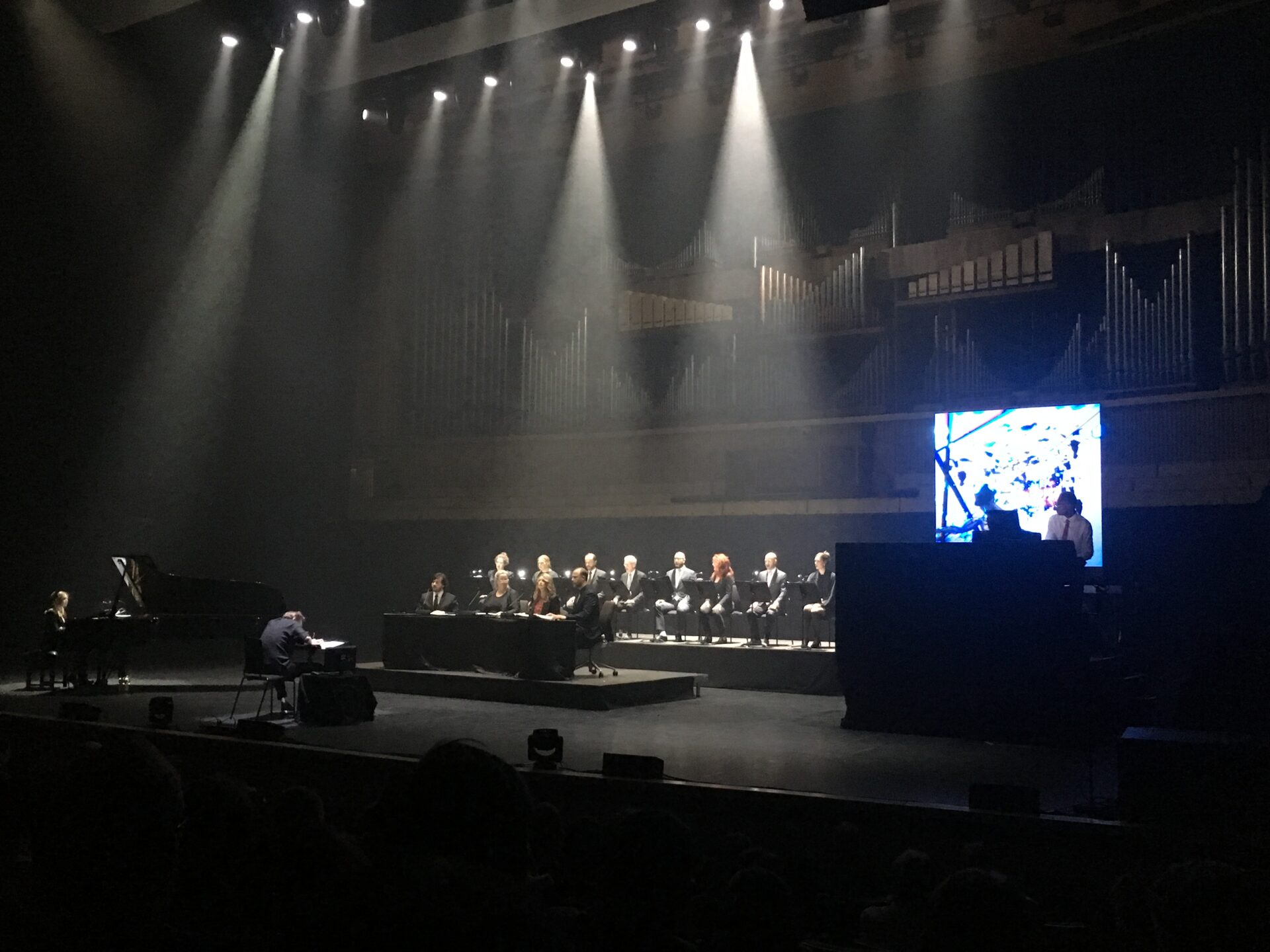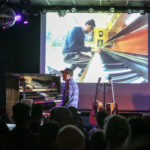Actress, or Crystal Palace-based producer Darren Cunningham, has come a long way since his early days hosting DJs like Autechre and Andrea Parker in the tiny room above a Camberwell bar called the Funky Monkey. Just as that bar is now an upmarket craft ale haven called Stormbird, so Cunningham has evolved from your common or garden producer of electronica into something altogether more exotic and interesting.
His much celebrated collaboration with the London Contemporary Orchestra earned him a place in the 2017 Proms line up, as part of an unforgettable night curated by Radio 3’s Late Junction, in the concrete-lined Tanks space deep below the Tate Modern’s new extension. ‘Actress x Stockhausen (sin) II’, however, is an even more ambitious project aiming to re-imagine a 1995 work by German experimental icon Stockhausen called ‘Welt Parliament’, which turned fictional politicians’ thoughts on love into a libretto for an opera. For the new version, Actress used real words from House of Lords debates on the meaning of love, more of which later, as well as creating – with the help oif some artificial intelligence programming – a soundtrack for their words to be performed over.
The stage is barely lit as the piece begins, clouds of dry ice catching the low light there is, as he appears high up on a podium, impeccably dressed in suit and tie. The sound is almost formless at first, frequencies emerging at the extremes of the sound spectrum – a sub-bass rumble that feels like it’s coming up through the floorboards, what could be a rainstorm heard from a distance happening behind us, from speakers at the back of the stalls. After a while, snippets of an angelic choir join the mix, again – we assume – coming from the speakers behind us. That is until the moment we realise the choir is real – the Netherlands Chamber Choir no less – and slowly making its way down the steps in the middle of the auditorium, clad in cassocks, with their scores lit by individual spotlights. Once they reach the front row they turn right and exit, still singing with eerie resonance, and eventually emerge on stage having removed their chorister garb and now dressed in sharp business-like suits. The stage has been set for them in the style of a Greek drama, with four desks at the front for the principal characters and a chorus-like gathering of others on chairs behind. Musically, you can hear echoes in the singing both of Cheryl Frances Hoad‘s florid, flowing birthday tribute to Stephen Hawking, and the staccato punctuation of ‘Einstein On The Beach’ by Philip Glass, with the choir occasionally adding their own kissing noises to keep the theme of love in our minds.
Actress, meanwhile, has worked his contribution up into something incorporating more rhythmic bleeps and tones, sometimes joined by a computer-generated voice exclaiming what we’re guessing are notes from the arrangement, such as “pause 30 seconds”.
The final piece of the sonic picture is completed as pianist Vanessa Benelli Mosell – a former pupil of Stockhausen – joins us, eliciting what are initially stirring and harmonious themes from the ivories, working in tandem with the developing storm of electronics. That’s when the choir begins at actually voice, in plain speech rather than singing, the words from the House of Lords debates. Some of them are funny – one lord declares “Twitter has been nice to me today” to the mocking of the others – some thoughtful, some sensual and others cynical, and after 40 minutes of impressionistic noises it’s quite weird to hear them, sort of like the only bit of clarity you can remember from a much longer and more disorientating dream.
Then it’s second time round for Vanessa Benelli Mosell at the piano, this time playing with a jarring and unresolved atmosphere, perhaps like the sense of panic and somersaulting butterflies in the stomach that love can inspire. It mirrors the increasing passion of the choir’s debate, until she finally reaches a climax by throwing her score in the air in exasperation and leaves in a (pre-planned) flounce, joined not long after by the choir, leaving us where we can in, Actress winding the electronics back down to simple, primordial elements and, eventually, silence.
It might be hard to classify – it’s part performance art, part opera, part improvisational electronic jam – and certainly would not be everyone’s cup of tea, but for those who are still interested in seeing and hearing electronic music being used to push envelopes and break down boundaries, this one off performance will doubtless quickly become the stuff of legend.
Photo: Sam Chamberlaine




